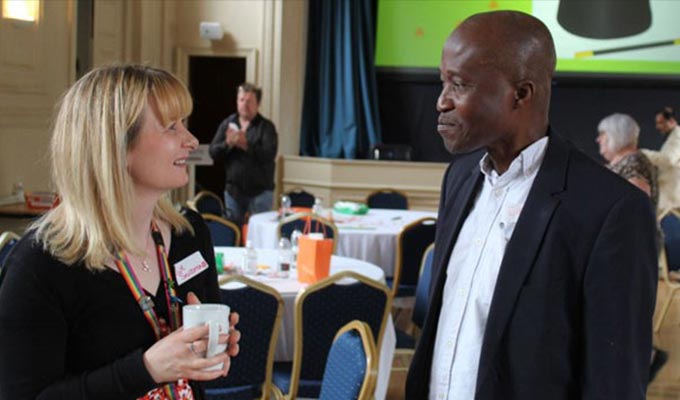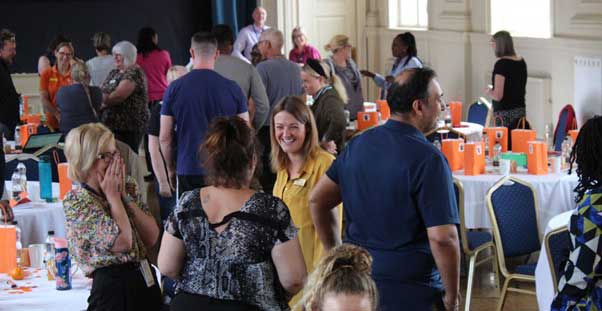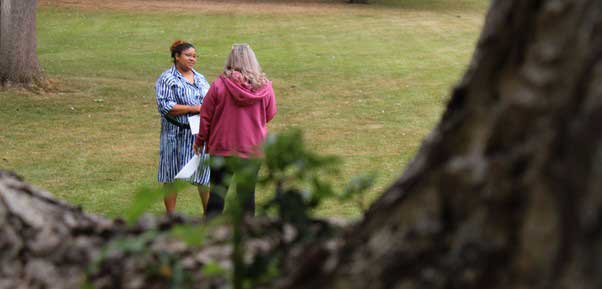
St Andrew’s had a simple ambition: to enable people to work at their best. To achieve this objective, they created a coaching community, using the ILM Level 5 Certificate and Diploma in Effective Coaching and Mentoring, adapting and evolving the programme over the last four years to suit the changing needs of the organisation.
The idea of a coaching community was first developed in 2018/19, when Learning & Development Manager, Sue Fairbrother, and Learning & Development Director, Holly Taylor, recognised a need for a programme which would help people to fulfil their potential, and turn good employees into great employees whilst also supporting new leaders and managers, and wellbeing across the organisation.
After considering their options, they chose to use the ILM Certificate and Diploma in Effective Coaching and Mentoring to achieve their aims. This level 5 qualification was a perfect fit for what St Andrew’s needed. Many of their staff, particularly clinicians, are highly qualified, but have never necessarily received any formal training in coaching. The ILM qualification enabled coaches to learn through theory and practice. Having an externally accredited framework gave assurance of a robust quality programme of learning, leading to high quality coaching with the flexibility to adapt to the Charity’s needs.
St Andrew’s were particularly keen to adapt the programme so that it effectively encapsulated the role of coaching in a healthcare setting. They took the ILM qualification and the complete ILM toolkit of coaching and mentoring learning resources to form the basis of their programme, and then added their own bespoke materials. They enlisted an external coach to undertake the coaching supervision, which was a core element of the programme to ensure the continued facilitation of coaching reflection amongst the peer coaches. ILM were on hand to quality-check the customised elements of the programme and provide feedback to maximise its successful implementation.
The programme had such a positive impact on those who participated, and the individuals who they coached and mentored, that the second cohort was launched in the autumn of 2019, right before the pandemic hit.
Like all healthcare settings across the country, St Andrew’s was heavily affected by Covid-19. The focus of the coaching programme shifted from the formal 1-2-1 coaching commitment (which busy clinicians in particular were struggling to consistently achieve), to an important wellbeing tool. It provided a less formal coaching community where people could come together as individuals or in teams, and have some headspace away from their busy schedules and wrap their arms around their people. The learning and development team recognised that even if the individuals on the programme weren’t able to undertake formal coaching every month, they were still using the coaching skills they were developing in their day-to-day roles. And what was more important was giving people the opportunity to pull together and share the mental load.
In April 2021, St Andrew’s started their third cohort, with ten more coaches added to the programme. They had also introduced a reverse mentor scheme, as senior leaders within the organisation had asked for opportunities to be linked with frontline staff, such as healthcare clinical assistants, to get a real understanding of how their strategic work impacted on the quality of care for patients. They particularly worked to engage with frontline staff who were from traditionally under-represented groups, such as individuals from an ethnic minority background. This introduction of reverse mentors added a unique and powerful aspect to the mentoring and coaching offering.
Coaching and Mentoring Conference

As the 2021 cohort got underway, Holly and Sue reflected on the programme overall and how it had changed over the previous two years. There was a feeling that it needed a re-launch, as the sense of community it was meant to create had been partially eroded by the competing demands brought on by the pandemic.
As a result, they launched their first annual coaching and mentoring conference in June 2022. All coaches who had undertaken the training were invited, as well as other people involved in formal or informal coaching and mentoring across the organisation, such as reverse mentors, line managers and apprentice mentors.
A total of 50 individuals participated, all with one thing in common that they could identify with: “I enable someone to do better in their job”. The purpose of the conference was to recognise attendees and the contribution they make to St Andrew’s. They wanted to show the coaches, mentors and line managers that they are a part of a community, but also that they do have a specialist skill. The conference, therefore, was about sharing experiences and connecting, as well as knowledge-building.
The theme of the conference was wellbeing and happiness and was anchored in the idea that happiness leads to success, as per Shawn Achor’s orange frog fable. Attendees received a range of goodies to take away based on this theme, such as orange coaching cards and notebooks, and participated in a range of sessions on happiness habits, reflecting with journals, identifying who you are at your best, the GROW coaching model framework, and kinaesthetics.
The conference was an overwhelming success, with great feedback from participants, and they are already planning their second conference to take place in the summer of 2023.
Impact

What has worked particularly well for St Andrew’s has been their ability to use the foundation of the ILM coaching qualification to create a programme that they have adapted and revitalised to suit the changing landscape of their organisation. As well as another conference, the learning and development team are now looking for ways in which they can continue to evolve the programme, making St Andrew’s an organisation in which people can thrive and fulfil their potential.
Quote from coachee:
When I began the coaching sessions I was in a very closed mind set and lacked confidence in the abilities that I knew I already had. In some areas I often sought validation to prove that I was good enough. The outcomes of the coaching sessions are that I now see what others see, and I have an inner strength that no longer needs validation from others to believe. Talking through why I lacked confidence in myself and setting challenges to take me out of my comfort zone also worked well as it forced me to look at myself and how my own behaviours were holding me back in my career.
Quotes from learners on the ILM coaching qualification:
I would recommend this course as an essential time investment for anyone wanting to step back and reflect upon their own skills and day-to-day behaviours, and to uncover the magic of how coaching techniques can enable support for others to achieve their own potential.
This is a truly fantastic course for personal and professional development. The tutors are incredibly supportive and go the extra mile to provide flexibility and ongoing feedback. The course provides the theory and structure to build confidence as a coach. A supportive learning environment is provided in which networking and supervision with peers adds to the overall experience.